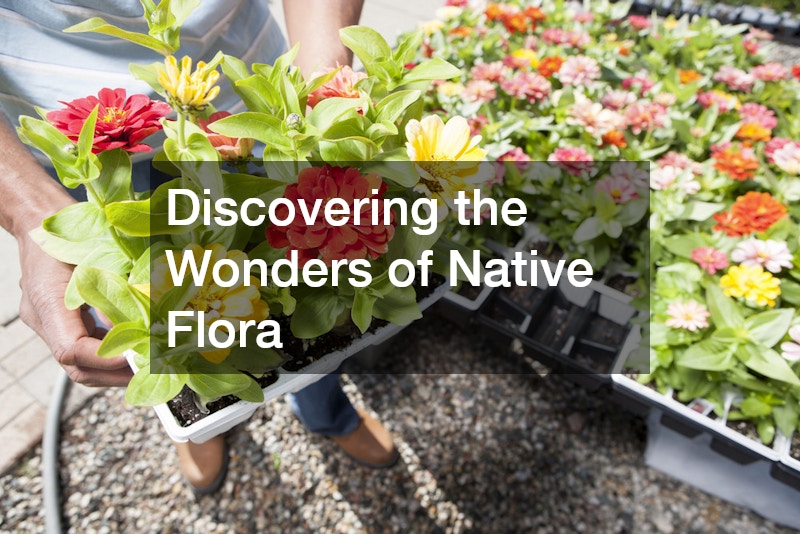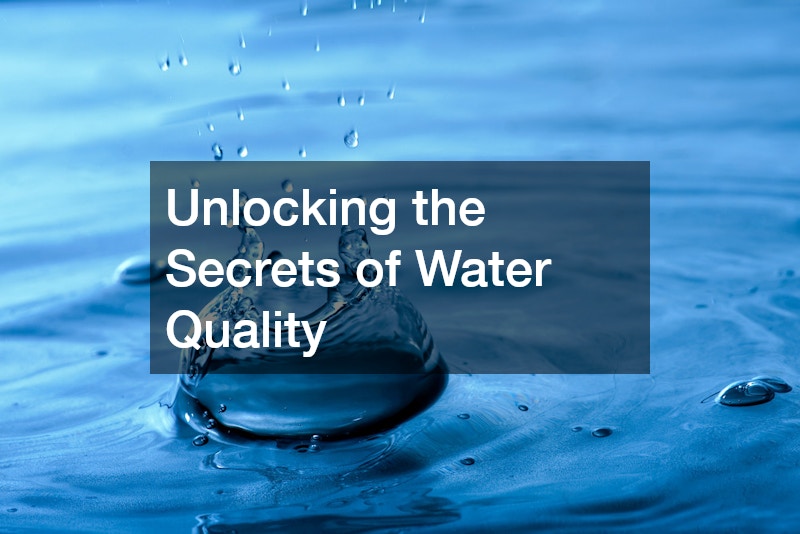Lifelong learning is a journey that extends far beyond formal education. Many individuals seek ways to continually challenge themselves, expand their knowledge, and develop skills throughout their lives. Engaging with new ideas and experiences encourages mental stimulation, creativity, and personal growth. From exploring scientific phenomena to delving into artistic pursuits, lifelong learners embrace curiosity and the thrill of discovery. This ongoing pursuit of knowledge allows people to adapt to change, remain informed, and enjoy enriched personal and professional lives. The concept of lifelong learning is increasingly important in a world where information evolves rapidly and the demands of the modern workplace continually shift.
Cultivating curiosity requires an open mind and willingness to step outside comfort zones. Lifelong learners often seek diverse subjects, ranging from technology and science to cultural studies and physical fitness. By integrating different learning opportunities into daily routines, individuals can maintain intellectual engagement while discovering new passions. The value of lifelong learning lies not only in accumulating facts or technical expertise but in developing critical thinking, problem-solving, and adaptability. This mindset fosters resilience and a deeper appreciation for the interconnectedness of ideas across disciplines.
In addition, lifelong learning promotes both mental and emotional well-being. Actively engaging the mind can help maintain cognitive function and stimulate creativity, while participation in hobbies and skill-building activities provides a sense of accomplishment. Exploring new concepts and experiences broadens perspectives, encourages empathy, and supports social connection. Ultimately, individuals who commit to ongoing education cultivate a richer, more fulfilling life. This article presents twelve interesting concepts designed to inspire lifelong learners, offering ideas that combine intellectual stimulation, practical skills, and creative exploration. Each concept demonstrates how curiosity can lead to meaningful growth and enduring personal development.
1. Discovering the Wonders of Native Flora

Studying milkweed plants offers lifelong learners an opportunity to explore the natural world while contributing to ecological balance. These plants are crucial for pollinators like monarch butterflies, providing nourishment and supporting biodiversity. Observing the life cycle of milkweed—from germination to flowering—teaches patience, observation skills, and an appreciation for natural processes. Gardeners and nature enthusiasts can incorporate milkweed plants into home gardens or community projects, creating both educational and environmentally beneficial spaces.
Including milkweed plants in personal learning projects reflects a commitment to practical, hands-on exploration. Homeowners and hobbyists alike find that engaging with native plants encourages curiosity about local ecosystems, seasonal changes, and sustainability practices. Integrating this into broader activities is one of many interesting concepts that demonstrate how learning extends beyond books or classrooms. By understanding the role of milkweed plants in ecosystems, learners cultivate awareness of interdependencies in nature, promoting ecological literacy alongside personal growth.
2. Designing Outdoor Spaces with Purpose
Working with a professional landscaper can illuminate the principles of spatial design, plant selection, and environmental stewardship. Observing how landscaping shapes a property provides insight into balance, proportion, and aesthetics, while also encouraging practical skills in planning and execution. Lifelong learners can experiment with color schemes, textures, and seasonal planting, discovering how different elements influence the perception and usability of outdoor spaces.
Incorporating the expertise of a landscaper introduces methods for problem-solving and creativity, emphasizing the importance of adaptability in design. Exploring these techniques aligns with interesting concepts by connecting practical outdoor management with educational exploration. Understanding how plants, walkways, and structures interact cultivates a deeper appreciation for the natural and built environment, while hands-on projects encourage observation, planning, and reflective thinking. This combination of learning and application demonstrates how engaging with professional guidance can expand personal knowledge in meaningful ways.
3. Integrating Technology for Everyday Convenience
Ev charger installation is an excellent example of how technology impacts modern lifestyles while providing a practical learning opportunity. Lifelong learners can explore the electrical systems, energy considerations, and sustainability benefits associated with electric vehicle infrastructure. Installing and understanding chargers requires comprehension of current standards, safety protocols, and energy efficiency, providing an applied learning experience that extends beyond theory.
Integrating ev chargers into a home or community setting demonstrates how technology intersects with everyday life, supporting sustainable practices and convenience. These installations also present an opportunity to consider broader societal trends, such as renewable energy adoption and urban planning challenges. Including ev charger installation in interesting concepts exposes learners to real-world technical problems, encouraging analytical thinking, research, and problem-solving skills. This hands-on exposure helps bridge the gap between conceptual understanding and practical implementation, reinforcing lifelong learning principles.
4. The Discipline of Martial Arts

Taekwondo is more than a physical practice; it encompasses philosophy, discipline, and goal-setting skills that lifelong learners can integrate into personal development. Engaging in martial arts builds physical fitness, coordination, and reflexes while also emphasizing mental focus, perseverance, and respect for tradition. Regular practice introduces incremental learning, where small improvements accumulate over time, reinforcing patience and self-discipline.
Lifelong learners exploring taekwondo gain insight into cultural practices, history, and the psychology of motivation. This approach illustrates interesting concepts by merging physical and cognitive growth. Each training session provides tangible feedback, encouraging reflection and strategy while fostering self-confidence. By combining skill acquisition with personal development, learners experience a holistic approach to education that extends far beyond conventional classroom settings, demonstrating how martial arts can inspire lifelong learning habits.
5. Expanding Knowledge in Medical and Health Fields
Pursuing healthcare degrees offers a structured pathway for individuals interested in scientific study, patient care, and public health. Lifelong learners benefit from exploring medical research, anatomy, and healthcare systems, which cultivate analytical thinking, problem-solving, and ethical reasoning. Engaging with these disciplines requires diligence, curiosity, and critical evaluation of evidence-based practices.
Including healthcare degrees as part of interesting concepts allows learners to connect academic study with societal impact. Understanding medical principles and patient outcomes encourages empathy, responsibility, and informed decision-making. This type of learning also highlights the evolving nature of healthcare knowledge, emphasizing the need for continuous professional development and ongoing curiosity. For lifelong learners, exploring healthcare education provides both practical skills and intellectual stimulation, combining purpose-driven learning with societal relevance.
6. Scientific Approaches to Everyday Challenges
Many lifelong learners explore scientific principles to solve everyday problems. Applying methods of observation, experimentation, and analysis helps individuals make informed decisions, test hypotheses, and refine strategies in real-world contexts. Learning to gather data, interpret results, and draw conclusions fosters critical thinking and resilience.
This approach to learning aligns with interesting concepts by encouraging a mindset of curiosity, experimentation, and adaptability. From simple home experiments to understanding natural phenomena, learners discover patterns, cause-effect relationships, and innovative solutions. Incorporating science into daily life reinforces the idea that knowledge is both practical and limitless, making everyday experiences richer and more educational.
7. Preserving and Enhancing Historic Spaces

Home restoration combines practical craftsmanship with historical research, offering opportunities to explore architecture, design, and cultural heritage. Lifelong learners engaging in restoration projects develop skills in planning, problem-solving, and attention to detail. Working with materials, structural elements, and preservation methods provides hands-on learning that complements theoretical knowledge.
Including home restoration as part of interesting concepts emphasizes the value of history, aesthetics, and functionality. Understanding original building methods, sourcing authentic materials, and coordinating repairs requires creativity and careful study. This immersive approach strengthens both technical expertise and appreciation for historical context, demonstrating how practical projects can support lifelong learning goals while producing meaningful results.
8. Innovative Techniques in Home Safety and Monitoring
Infrared testing introduces learners to technology applied in building inspection, energy efficiency, and safety. Using thermal imaging tools, individuals can detect heat loss, electrical issues, and moisture problems, providing both immediate feedback and long-term knowledge about structural performance. Lifelong learners gain insight into the principles of thermodynamics, energy management, and problem-solving while applying modern technology in practical settings.
Including infrared testing in interesting concepts combines hands-on practice with analytical reasoning. Learning to interpret thermal images, identify anomalies, and implement corrective measures encourages logical thinking and precision. This type of applied learning demonstrates how technology enhances understanding and practical skills, reinforcing the value of curiosity-driven exploration in real-world contexts.
9. Exploring Sustainable Transportation Solutions
E bikes provide a dynamic opportunity for lifelong learners to explore sustainable transportation, urban planning, and mechanical systems. Riding and maintaining e bikes exposes learners to battery technology, energy efficiency, and environmental impact considerations. Understanding how these devices function encourages experimentation, troubleshooting, and adaptation.
Integrating e bikes into interesting concepts highlights the intersection of mobility, sustainability, and innovation. Users can analyze performance metrics, evaluate energy use, and explore routes that maximize efficiency. These experiences teach problem-solving, mechanical reasoning, and awareness of broader environmental issues. Lifelong learners gain both physical activity and practical insight, demonstrating how emerging transportation technologies can inspire curiosity and growth.
10. Unlocking the Secrets of Water Quality

Water treatments provide an accessible way for learners to study chemistry, biology, and environmental management. Testing, monitoring, and adjusting water properties fosters understanding of chemical processes, microbial balance, and resource management. Lifelong learners discover the principles behind safe and sustainable water use in homes, pools, or local ecosystems.
Exploring water treatments aligns with interesting concepts by encouraging analytical skills, experimentation, and awareness of public health considerations. Learners can measure pH, examine filtration systems, and evaluate treatment outcomes, connecting scientific knowledge with practical applications. This approach demonstrates how everyday phenomena provide opportunities for ongoing education and skill development.
11. Using Advanced Tools for Energy Efficiency
CO2 for ph control in pools represents a hands-on learning opportunity in chemistry, environmental engineering, and pool maintenance. Understanding how CO2 regulates pH requires careful observation, measurement, and application of chemical principles. Lifelong learners can investigate cause-and-effect relationships, refine techniques, and monitor outcomes for efficiency and safety.
Including CO2 for ph control in interesting concepts merges practical knowledge with scientific reasoning. Learners develop precision, attention to detail, and problem-solving skills while exploring energy-efficient and environmentally friendly solutions. This type of applied learning fosters critical thinking and experimentation, encouraging lifelong curiosity and engagement with real-world challenges.
12. Combining Multiple Learning Paths for Personal Growth
Milkweed plants, landscaping, ev charger installation, taekwondo, healthcare degrees, co2 for ph control in pools, home restoration, infrared testing, e bikes, and water treatments represent a diverse array of fields that can be integrated to create holistic learning experiences. Lifelong learners benefit from combining these concepts to explore ecology, technology, fitness, science, and culture simultaneously. Interdisciplinary approaches encourage the development of transferable skills, such as analytical thinking, creativity, time management, and adaptability.
Exploring multiple fields allows learners to identify connections between seemingly unrelated subjects. For example, observing milkweed plants can inform landscaping design decisions, while e bikes may connect transportation understanding with environmental sustainability. Infrared testing and CO2 for ph control in pools introduce technical and scientific principles that complement problem-solving and analytical reasoning. Taekwondo and healthcare degrees offer insights into physical and intellectual development, demonstrating how personal health, discipline, and science intertwine. Home restoration encourages craftsmanship and historical knowledge, while ev charger installation integrates modern technology with practical energy considerations. Water treatments provide practical applications of chemistry and environmental awareness.
Including all of these topics under the umbrella of interesting concepts fosters comprehensive cognitive development. Learners gain perspective on interconnected systems, develop specialized skills, and cultivate lifelong curiosity. Combining multiple pathways reinforces engagement, encourages experimentation, and supports personal fulfillment. By thoughtfully exploring a variety of subjects, lifelong learners create enriching experiences that extend far beyond traditional education, demonstrating that curiosity and exploration are limitless.
Lifelong learning provides endless opportunities for personal growth, intellectual engagement, and practical skill development. By exploring the twelve interesting concepts presented in this article, individuals can expand knowledge across diverse disciplines, including ecology, technology, health, science, and physical fitness. Engaging with these concepts encourages curiosity, critical thinking, and creativity, while also offering practical applications that enrich everyday life.
Each concept demonstrates how hands-on learning, observation, and experimentation support long-term development. From exploring milkweed plants and landscaping to understanding e bikes, CO2 for ph control in pools, and infrared testing, learners gain insight into both technical skills and broader systems. Taekwondo and healthcare degrees highlight the intersection of physical, intellectual, and ethical development, while home restoration, ev charger installation, and water treatments provide tangible applications of knowledge.
By incorporating these ideas into daily practice, lifelong learners can cultivate curiosity, adaptability, and resilience. The combination of practical skills, scientific understanding, and cultural exploration fosters holistic growth and personal fulfillment. Interesting concepts provide a roadmap for meaningful learning experiences that inspire ongoing engagement, demonstrate the interconnectedness of knowledge, and highlight the value of curiosity-driven exploration. Ultimately, embracing these concepts ensures that learning remains an enriching, lifelong journey that benefits both the individual and their community.
